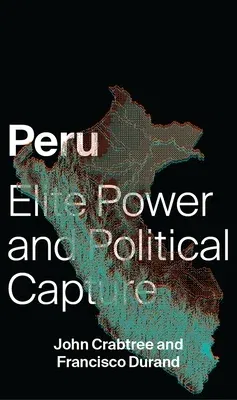While leftist governments have been elected across Latin America, this
'Pink Tide' has so far failed to reach Peru. Instead, the corporate
elite remains firmly entrenched, and the left continues to be
marginalised. Peru therefore represents a particularly stark example of
'state capture', in which an extreme concentration of wealth in the
hands of a few corporations and pro-market technocrats has resulted in a
monopoly on political power.
Post the 2016 elections, John Crabtree and Francisco Durand look at the
ways in which these elites have been able to consolidate their position
at the expense of genuine democracy, with a particular focus on the role
of mining and other extractive industries, where extensive privatization
and deregulation has contributed to extreme disparities in wealth and
power.
In the process, Crabtree and Durand provide a unique case study of state
development, by revealing the mechanisms used by elites to dominate
political discussion and marginalize their opponents, as well as the
role played by external actors such as international financial
institutions and foreign investors. The significance of Crabtree's
findings therefore extends far beyond Peru, and illuminates the wider
issue of why mineral-rich countries so often struggle to attain
meaningful democracy.

